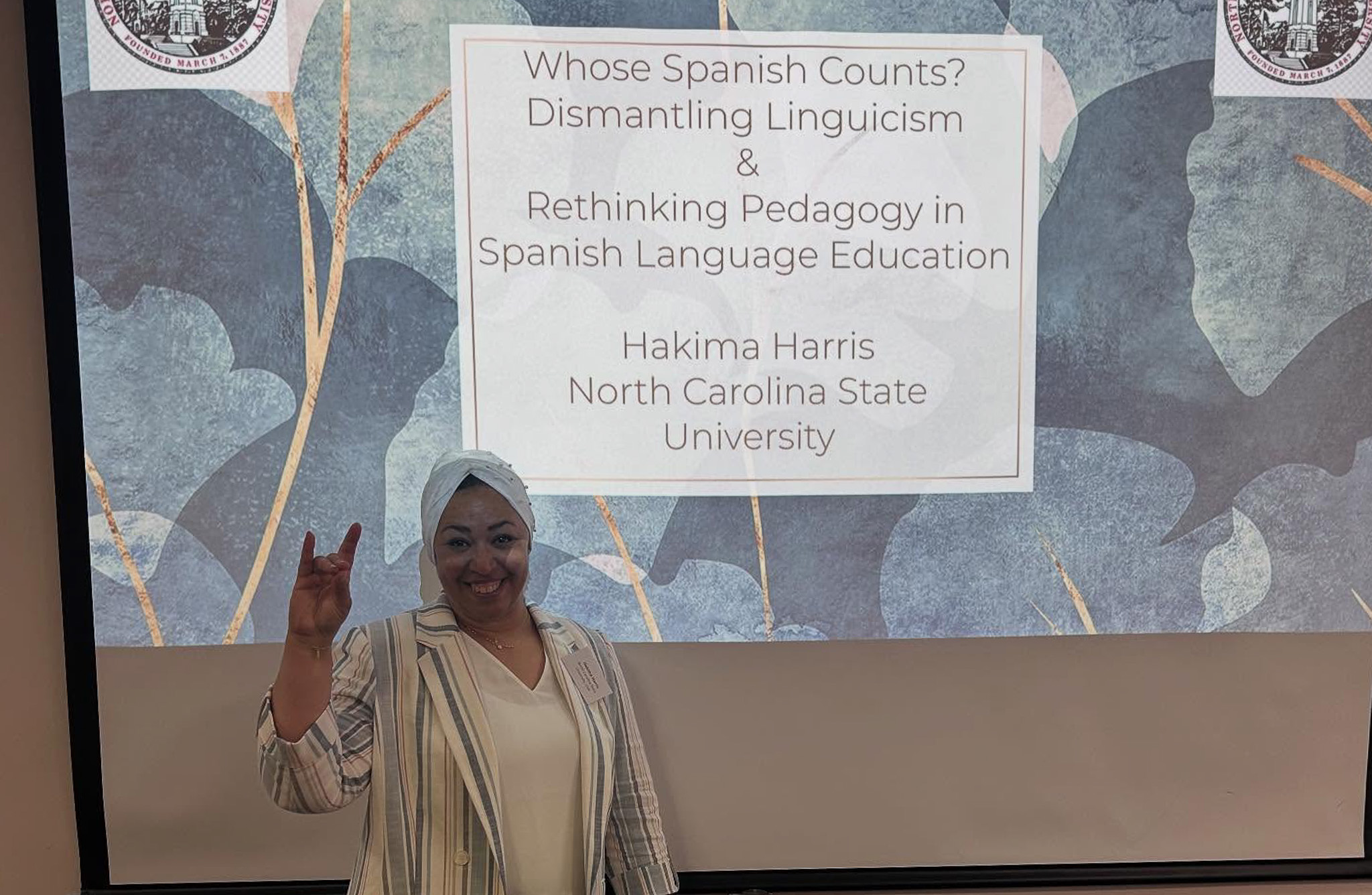GOLDSBORO, N.C. – A Wayne Community College Spanish instructor recently brought her research on language education equity to an international stage, presenting at a prestigious conference in Manchester, England.
Hakima Harris, who teaches Spanish at WCC, delivered a presentation at the inaugural International Conference on Globalization in Languages, Education, Culture, and Communication. The conference drew researchers, educators, and policymakers from across the globe, representing diverse fields including foreign and second languages, cultural studies, translation, and communication.
Harris’s presentation, titled “Whose Spanish Counts? Dismantling Linguicism and Rethinking Pedagogy in Spanish Language Education,” addressed critical issues of language bias in educational settings. Her research focused on providing practical strategies for educators, administrators, and program developers to adopt teaching methods that recognize and value students’ diverse Spanish dialects.
“The presentation topic is part of Harris’s ongoing dissertation research,” according to the college. Harris is currently pursuing a Doctor of Philosophy degree through North Carolina State University’s Teacher Education and Learning Sciences program.
The Manchester conference served as a platform for participants to share research outcomes, discuss findings, and identify emerging challenges and trends in global language education. The international gathering underscored the growing recognition of the need for more inclusive approaches to language instruction.
Harris’s participation in the conference reflects Wayne Community College’s commitment to faculty development and scholarly research that benefits both students and the broader educational community. Her work addressing linguicism – discrimination based on language use or accent – represents important contributions to the field of second language education.
The research presentation comes at a time when educational institutions are increasingly examining their practices to ensure equity and inclusion for students from diverse linguistic backgrounds.

